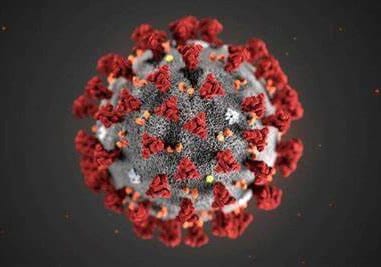Some experts recommend people to abstain from alcohol around the time of their Covid-19 vaccination. They argue that alcohol consumption lowers the immune response. Scientific literature shows that excessive alcohol consumption does indeed lower the immune response, which supports the advice to avoid excessive drinking in general, especially around the time of vaccination. However, low alcohol consumption does not seem to have a negative effect on the immune system. Moderation, also around the time of COVID-19 vaccination, remains key.
Not drinking for two months?
Anna Popova, the head of the Russian Federal Service for Surveillance on Consumer Rights Protection and Human Wellbeing (Rospotrebnadzor), advised Russians to quit drinking alcohol two weeks before their first vaccine shot and for a further three weeks after the second. There is a three-week gap between injections so that is a total of eight weeks on the wagon1. Other experts are less strict in their advice. “We strongly recommend refraining from alcohol for three days after each injection,” advises Alexander Gintsburg, head of the Gamaleya National Center of Epidemiology and Microbiology in Moscow, which is developing the Sputnik V Vaccine.1
Their argumentation is that drinking alcohol after getting a coronavirus vaccine can significantly blunt the immune response and potentially render the vaccine ineffective.1,2
Alcohol and immune response
Scientific literature shows there is a consensus that chronic heavy alcohol consumption has a detrimental effect on the immune system. Chronic heavy alcohol consumption is associated with a decreased frequency of lymphocytes, a type of white blood cells that is important for the immune system, and an increased risk of both bacterial and viral infections 3,4. Thus, excessive alcohol consumption acts as an immunosuppressant.
However, the effect of moderate alcohol consumption (one glass per day for women and two for men) is less clear. Looking at observational studies, moderate alcohol consumption is associated with reduced inflammation and improved responses to vaccination, compared to abstaining3. So, in contrast to heavy chronic alcohol consumption, moderate alcohol consumption may trigger the immune response rather than suppress it; there seems to be a kind of J-shaped association between alcohol consumption and immune system function.4 Be aware that this is an association and not a causal relation.
Vaccination
As previously mentioned, a review article found reduced inflammation and improved responses to vaccination with moderate alcohol consumption3. However, another review5 article found inconsistent results. Alcohol consumption does not seem to influence antibody responses to Hepatitis A or B vaccination, but might influence responses to pneumococcus vaccination. Vaccination to COVID-19 was not taken into account.
In trials from the Sputnik V vaccine, about 10 percent of people do not become immune. This figure is similar for other vaccines. The reasons for this are unknown. Whether alcohol could be a factor hasn’t been investigated. Currently, no advise is given regarding alcohol consumption with the COVID-19 vaccination of AstraZeneca, Pfizer or Moderna.1
Conclusion: moderation
In conclusion, excessive alcohol should be avoided, but moderate alcohol consumption does not seem to have negative effects on the effectiveness of vaccination. Whether this is also the case for COVID-19 vaccination has not been investigated yet.
References
1. New Scientist: Should you avoid alcohol when getting a coronavirus vaccine?
2. MailOnline: Anyone receiving Covid vaccine should AVOID drinking alcohol because it can reduce the body’s immune response to the jab, experts warn
3. Barr, T., Helms, C., Grant, K., & Messaoudi, I. (2016). Opposing effects of alcohol on the immune system. Progress in Neuro-Psychopharmacology and Biological Psychiatry, 65, 242-251.
4. Diaz, L. E., Montero, A., Gonzalez-Gross, M., Vallejo, A. I., Romeo, J., & Marcos, A. (2002). Influence of alcohol consumption on immunological status: a review. European journal of clinical nutrition, 56(3), S50-S53.
5. Zimmermann, P., & Curtis, N. (2019). Factors that influence the immune response to vaccination. Clinical microbiology reviews, 32(2).

